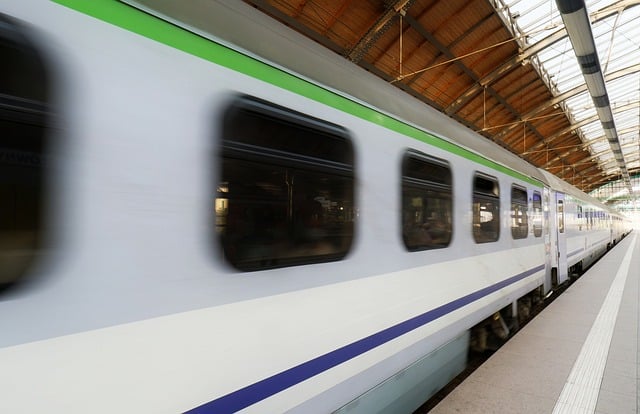I received my autism diagnosis at the age of three and have since devoted a substantial part of my life to adapting to my disability while advocating for others facing similar challenges. As the son of Argentinian immigrants, my journey includes the struggles of my parents navigating the intricate world of social services agencies and the unique challenges of raising a child with autism in a new country. My parents share their struggles, echoing the experiences of countless parents striving to nurture children into independent adults.
In recent weeks, I met with several delegates at the Maryland General Assembly regarding a proposed transportation program for individuals with autism and other disabilities. Unfortunately, these delegates expressed that the implementation of such a program is currently deemed unfeasible given the current fiscal climate.
Their perspective stems from the decision made by the administration of Governor Wes Moore to initially cut nearly $3.3 billion in the state’s six-year spending plan for transportation. While Governor Moore’s recent announcement on January 16, 2024, disclosed the restoration of $150 million to the state’s transportation budget for a one-year duration, this falls short of addressing the substantial challenges. Consequently, these financial decisions have led to significant reductions in public transit, including cutbacks in commuter bus service, a notable 40% decrease in state government aid allocated to locally operated transportation systems, and discernible impacts on MARC commuter rail service, road upkeep, guardrails, buses, and commuter rail equipment.
Adding to the complexity is information from the Washington Metropolitan Area Transit Authority (WMATA), which indicates that without additional contributions from funding partners, the Metro anticipates the necessity to escalate fares and implement substantial cuts to both service and the Metro workforce. This situation poses a dire scenario, particularly for residents in Prince George’s County, Montgomery County, and various other central parts of Maryland.
Public transportation holds significant importance for individuals with autism for various compelling reasons. Primarily, it promotes independence by providing a means of mobility for those who may face challenges with driving or lack access to personal vehicles. This newfound independence, in turn, enhances their ability to engage in community activities, fostering a sense of belonging and social inclusion. Additionally, public transportation expands employment opportunities, enabling individuals with autism to commute to work independently and integrate more seamlessly into the workforce.
Furthermore, public transportation uniquely addresses the specific needs of individuals with autism, taking into account factors such as routine, predictability, and environmental sensitivities. The structured schedules and routes of public transit systems align with the preference for routine often observed in individuals with autism, creating a more predictable environment that helps reduce stress and provides a cost-effective alternative to owning and maintaining a personal vehicle.
The challenges faced by individuals with autism while driving, such as sensory sensitivities, processing information quickly, multitasking difficulties, and challenges in social communication, underscore the critical role of public transportation. While some individuals with autism, myself included, may be part of the 33% who drive, many others significantly benefit from accessible public transportation. For those with sensory sensitivities, crowded spaces, and noise can be overwhelming, making public transit a more comfortable option.
Advocating for a more autism-friendly public transportation system becomes not only important but essential. To further this cause, I plan to participate in a march in Annapolis on February 21, 2024, urging both Republican and Democrat lawmakers to allocate funds for programs supporting independent living for people with disabilities.
In collaboration with fellow members of the autism community, our goal is to persuade lawmakers to pass legislation supporting funding for programs benefiting individuals with autism. Additionally, we aspire to establish a comprehensive statewide governmental autism strategy that caters to both children and adults with autism. This multifaceted approach aims to ensure the well-being, inclusion, and enriched community engagement of individuals with autism across various aspects of their lives.
Reaching this stage, where I can voice my thoughts, collaborate with leaders, and mobilize the autism community, has been a challenging journey. For many living with autism, it seems impossible. However, I firmly believe that individuals living with autism can become integral and productive members of our society. The key to making this possibility a reality lies in addressing transportation challenges. Transportation matters in enabling inclusion for people living with autism. Let’s not forget that as we make the tough decisions to reconcile our budget constraints to our prioritization to leaving no one behind.








Recent Comments